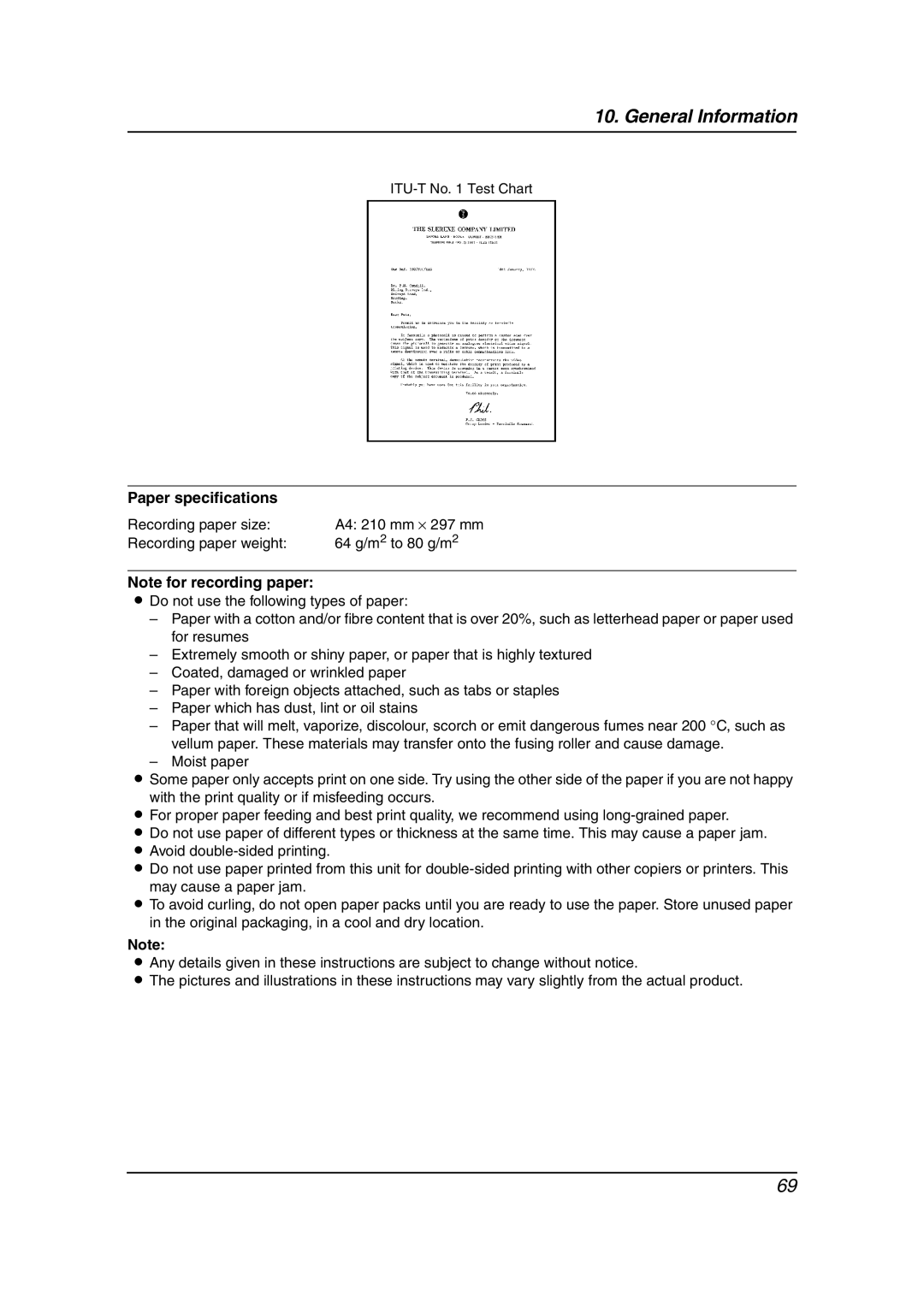
10. General Information
Paper specifications
Recording paper size: | A4: 210 mm ⋅ 297 mm |
Recording paper weight: | 64 g/m2 to 80 g/m2 |
Note for recording paper:
LDo not use the following types of paper:
–Paper with a cotton and/or fibre content that is over 20%, such as letterhead paper or paper used for resumes
–Extremely smooth or shiny paper, or paper that is highly textured
–Coated, damaged or wrinkled paper
–Paper with foreign objects attached, such as tabs or staples
–Paper which has dust, lint or oil stains
–Paper that will melt, vaporize, discolour, scorch or emit dangerous fumes near 200 °C, such as vellum paper. These materials may transfer onto the fusing roller and cause damage.
–Moist paper
LSome paper only accepts print on one side. Try using the other side of the paper if you are not happy
with the print quality or if misfeeding occurs.
LFor proper paper feeding and best print quality, we recommend using
LDo not use paper of different types or thickness at the same time. This may cause a paper jam. L Avoid
L Do not use paper printed from this unit for
L To avoid curling, do not open paper packs until you are ready to use the paper. Store unused paper in the original packaging, in a cool and dry location.
Note:
LAny details given in these instructions are subject to change without notice.
LThe pictures and illustrations in these instructions may vary slightly from the actual product.
69
